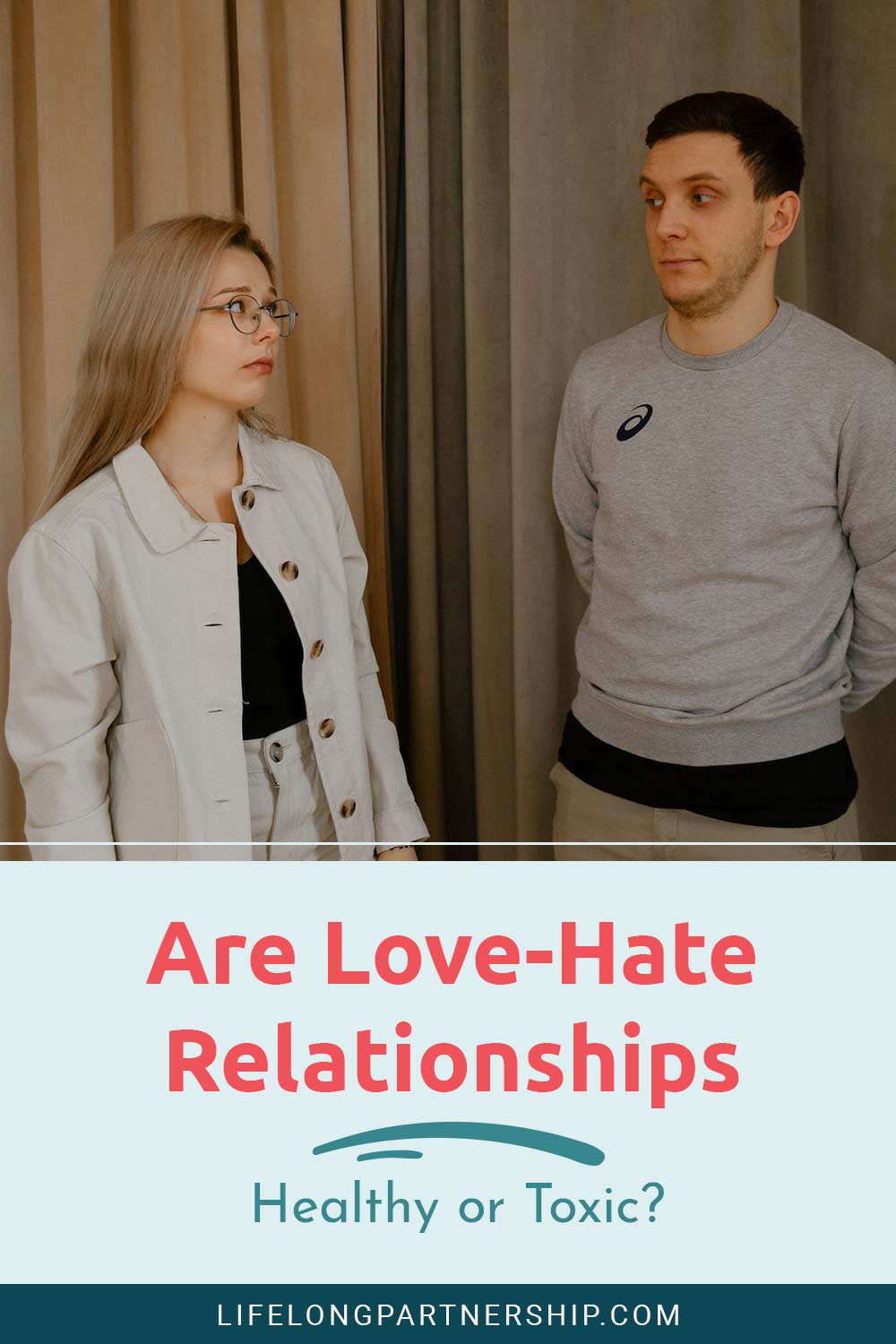Love-hate relationships are a common trope in pop culture. Think of characters like Ross and Rachel from “Friends” or Elizabeth and Mr. Darcy from “Pride and Prejudice.”
These relations are characterized by my intense emotions, both love and hate toward the same person.
But are love-hate relationships healthy or toxic? We’re going to explore the different aspects of love-hate relationships and determine whether they are beneficial or detrimental to our overall well-being, so keep reading and let’s explore this topic together.
Is This Common?
Indeed, love-hate relationships are quite common, and many individuals have gone through them. A cycle of strong emotions, ranging from love and passion to rage and frustration, frequently defines these partnerships.
Couples frequently go through periods of ferocious fighting before making up and experiencing a time of ferocious love. But, even if it’s common, is it something that is normal?
Are Love-Hate Relationships Normal?
Although love and hate relationships are common, as we discussed above, they’re not always healthy or natural. Mutual respect, trust, and open communication should serve as the cornerstone of all relationships.
Partners in a good relationship should experience little drama or strife while feeling safe and supported. While disputes and disagreements are unavoidable, they should be addressed reasonably.
If it becomes a regular situation, it’s time to decide whether it’s a situation you want to stay in or if there’s anything to save.
Why is it Bad for You?
Love-hate relations are like a roller coaster ride of emotions. One moment you’re head over heels and love, and the next, you’re ready to tear your partner’s head off.
While this intense back and forth makes the way to building a relationship. In fact, love-hate relationships can be downright toxic, and here’s why:
- They’re emotionally draining – Love-hate relationships can be emotionally exhausting, leaving you feeling drained and depleted.
The constant cycle of intense emotions can be overwhelming, leading to feelings of anxiety, depression, and self-doubt.
- They can be physically and emotionally abusive – The intense emotions of a love-hate relationship can lead to verbal or physical abuse, which can be harmful to both partners.
The anger and frustration that come with the “hate” part of the relationship can escalate quickly, leading to hurtful and damaging behavior.
- They prevent personal growth – Love-hate relationships can prevent personal growth, as partners become consumed by the cycle of intense emotions.
The relationship becomes the center of their universe, leaving little room for personal growth or self-improvement.
- They’re not based on mutual respect – Healthy relationships are built on a foundation of mutual respect, trust, and communication. However, respect often takes a back seat to intense emotions in a love-hate relationship.
- They can prevent you from finding true love – Love-hate relationships can be addictive, leaving you trapped in a cycle of intense emotions. This can make it difficult to move on and find true love.
What is the Psychology of a love-hate Relationship?
The psychology of a love-hate relationship is nuanced and complex. One theory is that a person’s attachment style, shaped by their early interactions with their parents or primary caregivers, leads to these connections.
Those with an anxious attachment style may seek out intense, passionate relationships to overcome their uncertainties and worries.
However, a love-hate relationship can also be addictive due to the powerful emotions that come along with it, which can lead to an unbreakable cycle of happiness and misery.
Should You Stay in Such a Relationship or Leave?
Depending on the particular conditions, you may be at the point in the relationship where you should decide whether to quit or continue in a love-hate relationship. Leaving is the best and safest course of action if the relationship has persistent emotional and physical abuse.
But, if the relationship has its ups and downs but is overall healthy, it could be worthwhile to seek therapy to help you work through the issues.
The secret is to create appropriate boundaries and ensure that both parties are dedicated to creating a happy and healthy relationship.
Final Thoughts on Are Love-Hate Relationships Healthy or Toxic
There you have it, everyone! After delving into the complexities of love-hate relationships, it’s reasonable to state that, depending on the situation, they may be either healthy or toxic.
On the one hand, a love-hate relationship can be constructive if both partners are prepared to talk things out and communicate clearly. However, on the other side of the coin, love can swiftly turn toxic if it starts to be physically and emotionally damaging.
Communication, respect, and a desire to develop as a couple are ultimately the keys to every happy relationship.
A love-hate relationship may be a beautiful and gratifying experience if it can deliver those things. If not, it is preferable to find a new, healthy partnership.

